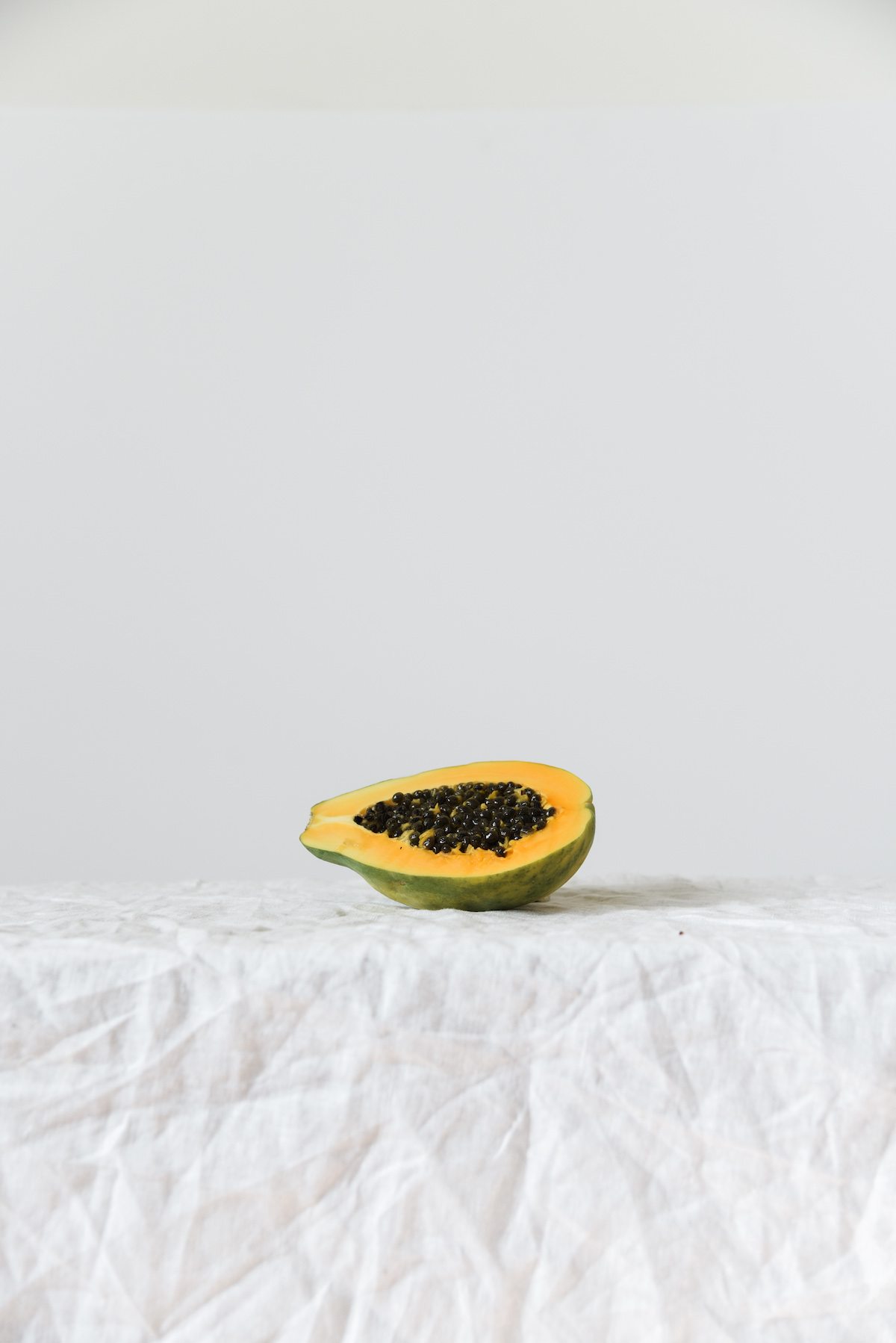As the weather warms up we’re looking forward to long runs, day hikes and yoga in the park. There’s just something about kickstarting a new workout routine when the seasons change that we can totally get behind. Our friends at Chalkboard Mag* feel the same. In prep for getting the most out of our time in the sun, we’re sharing their below article on pre-workout best practices. As always, this is meant to be education only, so you can decide what’s best for you!
Sometimes it feels like fitness is more about what we do before and after a sweat sesh — but these little details can majorly accelerate our fitness goals. Pre-workout supplements offer a natural way to boost our burn and functional medicine doctor Josh Axe is educating us on the best ingredients to try and ones we should definitely avoid.
Often, committing to a regular exercise routine is the hardest part of getting fit. So once you make that step, it’s only natural to want to get the most out of every workout. And starting with a pre-workout supplement can be one of the best ways to do that.
The right supplement or snack before a workout will give you the energy you need to make it through an intense sweat session and also supply your body with the nutrients it requires to burn fat, tone up and build lean muscle. In fact, scientific research shows that a quality supplement can lead to “significant improvements in anaerobic peak and mean power values.” Simply put, a pre-workout supplement can give you the energy and power you need to blast through that last set of reps when you’d otherwise feel like quitting.
Now, it’s important to note that you can’t eat a bag of potato chips before you hit the gym and think you’ll see optimum results. After we’ve discussed the “good” in pre-workout supplements, we’ll go over the “bad.”
TOP PRE-WORKOUT INGREDIENTS TO TRY
GLUCOSE
Your muscles require the proper fuel to really power through a workout and much of that fuel should come from glucose, which can be found in healthy carbohydrates like fruit or whole grains. Glucose is your muscle’s fastest and most preferred energy source, so it’s best to try to consume a small amount (about 15 to 30 grams) about 30 to 60 minutes prior to exercising. If you can’t find a pre-made supplement to fit the bill, try noshing on a banana.
B VITAMINS
Getting enough B vitamins (B12 and B6, in particular) can help prevent fatigue, muscle weakness and brain fog, especially if you’re dealing with lots of stress and using exercise to cope. Vitamin B12 deficiency is believed to be fairly common, which is problematic for exercisers when you consider that you and your muscles and nervous system need an array of B vitamins to stay strong and clear-headed.
When purchasing supplement, look for an organic, food-based source of vitamin B that contains the methylcobalamin form of B12 for best absorption.
ELECTROLYTES
The reason many people rely on sports drinks before, during and after exercising is the dose of health-boosting electrolytes they supply, including magnesium and potassium. Both are needed to maintain proper fluid levels, prevent dehydration and ward off muscle cramping.
The problem, however, is that many of these drinks are full of artificial coloring and sweeteners, as well as other chemical additives. So because potassium is especially beneficial pre-workout, I recommend having a smoothie made with banana (or another potassium-rich food) or a glass of coconut water before working out.
Simply put, a pre-workout supplement can give you the energy and power you need to blast through that last set of reps when you’d otherwise feel like quitting.
MODERATE AMOUNTS OF CAFFEINE
If you can tolerate caffeine (meaning you don’t experience side effects like very rapid heartbeats or increased perspiration, for example), then consuming some from natural sources like a cup of organic coffee, tea or even green-tea extract can help you overcome an energy slump before working out.
Studies suggest that while caffeine won’t maximize your oxygen capacity directly, it often has the effect of boosting motivation, mood, power output and/or stamina in order to help you train harder and for longer. And while not every study has shown this to be true, some experts also theorize that caffeine may also enhance fat burning and decrease muscle waste following exercise.
PRE-WORKOUT INGREDIENTS TO AVOID
REFINED CARBS AND ADDED SUGAR
While consuming a source of glucose before exercise is beneficial, eating a concentrated source of refined sugar or processed grains (including most meal replacement bars or juices) can rob you of energy before you know it. Sugar is a quick-acting substance that will spike blood-glucose levels and cause you to feel energetic for short period of time, but those levels will later plummet, causing you to feel weak and in search of your next “hit.”
TOO MUCH CAFFEINE
Downing a cup of coffee before a workout might give you the workout boost you’re looking for, but studies show it’s easy to consume much more caffeine than you’ve bargained for if you rely on bottled energy drinks or “weight-loss pills.” Both can contain three times the amount of caffeine found in a typical cup of regular coffee‚ making you feel jittery, uncoordinated and anxious. And in extreme cases, the constant caffeine cycle can lead to a caffeine overdose. Stick with one cup of coffee or tea prepared at home.
*The Chalkboard Mag and its materials are not intended to treat, diagnose, cure or prevent any disease. ?All material on The Chalkboard Mag is provided for educational purposes only. Always seek the advice of your physician or another qualified healthcare provider for any questions you have regarding a medical condition, and before undertaking any diet, exercise or other health related program.
Images via Tess Comrie













1 comment
I like your advice of fuelling up on electrolytes with coconut water pre-workout. It’s a great natural choice in a market saturated by sugary sports drinks!
–
Charmaine Ng | Architecture & Lifestyle Blog
https://charmainenyw.com